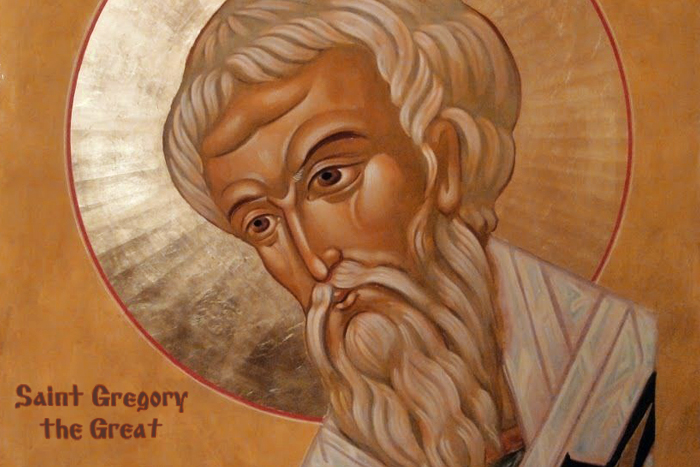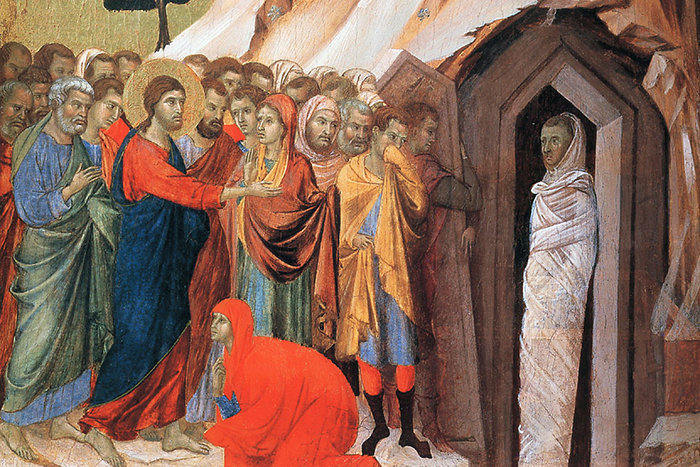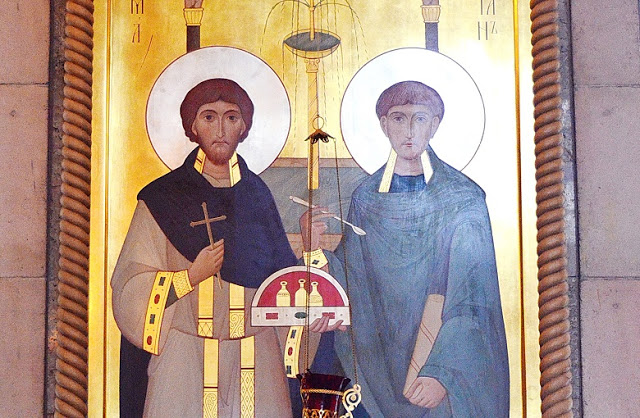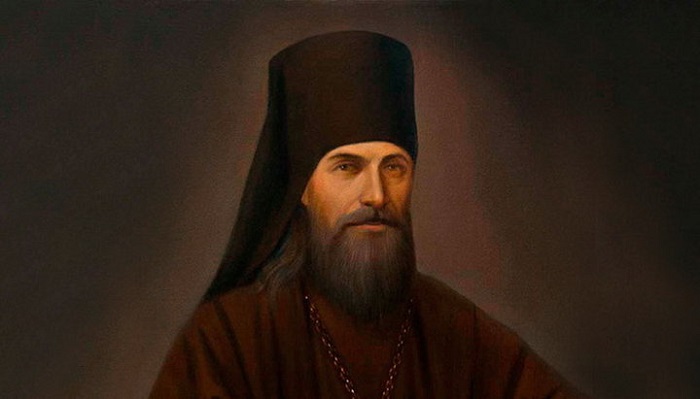
On March 12/25, we recall St. Gregory I the Great, Pope of Rome (590-604), who was one of the most prominent representatives of Western Christianity revered in Orthodoxy.
He was born circa 540 to a Christian family of a Roman Senator and held the position of a city praetor in his youth. Having renounced secular life, he became a deacon of a cathedral, later founding seven monastic communities at his own expense. He was a papal nuncio in Byzantium from 579 to 585, and then the abbot of a monastery based in his own house. Becoming head of the Roman Church in 590, Gregory proved to be an energetic leader not only in ecclesiastical, but also in economic and political affairs. He tries to manage the affairs of the entire Church of the West; he establishes the Church in England (by sending his disciple Augustine as a missionary there); he negotiates with the hostile Lombard kings, saving Rome from plunder and destruction; he takes care of the supply of bread to Rome; he visits the churches of Italy and Gaul; he writes (about 900 of his letters on various issues have survived) and preaches a lot.
Servant of the Servants of God
Gregory the Great had a great influence on the development of medieval religiosity. He gave a concise justification to the idea of papal authority. Yes, the Christian Church possesses full authority, but only to fulfill its mission of converting the world to Christ, its preparation for Deuteroparoussia (the Second Coming), of which we do not know yet. As the successor of the Apostle Peter, he sees the main purpose of the Roman bishop only in “ministry” and “care for the whole Church”, emphasizing this humble title of himself “servus servorum Dei, the servant of the servants of God” (later this phrase was incorporated into the title of the Pope). Rebuking the Patriarch of Constantinople, John IV the Faster, for accepting the “godless and proud” title of “Ecumenical” Patriarch, Gregory points out that this humiliates the dignity of other bishops and puts the whole Church in danger: if the “Ecumenical” bishop were to fall into the heresy, it would mean the fall of the whole Church. (The Patriarchs of Constantinople who are now in reality “the bishops of Istanbul” bear this proud archaic title until today).
The main works of Gregory the Great are commentaries to the Bible, but his Dialogues on the Life and Wonders of the Holy Fathers of Italy and on the Immortality of the Soul (hence his title “The Dialogist”: according to the Slavonic Minea, “for the eloquence of his dialogues”); as well as his Book of Pastoral Rule, a guidebook and a collection of instructions for priests, translated into Greek during the author’s lifetime, turned out to be the most well-known of his writings. Book IV of the Dialogues, which deals with the post mortem destiny of the soul, was the first in medieval literature to use “visions”, which later became a common genre, and articulates the doctrine of “purifying fire”, from which the doctrine of Purgatory is derived. A tradition that has no strict scientific confirmation attributed to Pope Gregory the compilation of several hymns and the establishment of a fixed order of worship: Sacramentarium (text of the Mass) and Antiphonarium (text of choral hymns; moreover, the name of Gregory is present in the famous term “Gregorian chant”), as well as the authorship of the Divine Liturgy of the Presanctified Gifts, celebrated by the Orthodox during Lent.
According to modern scientific data, Gregory the Dialogist was not the author of the Liturgy, nor was he the creator of Gregorian chorals, the ancient hymns of the Latin Church similar to Russian znamenny chant. But there is no smoke without fire: while on the papal throne, Saint Gregory indeed composed liturgical hymns, structured church services, and reformed choir singing. Therefore, it is perfectly justified to name liturgical works in his honor, although he cannot be regarded as their true author.
Translated by The Catalogue of Good Deeds
Source: https://azbyka.ru/days/p-velikij-sobesednik



